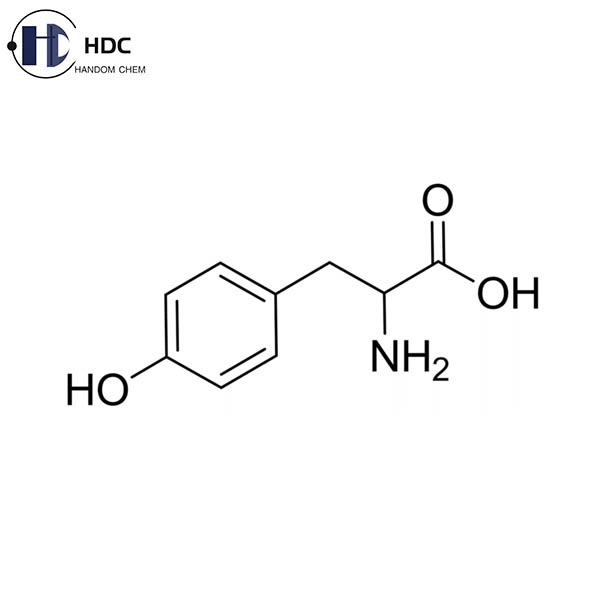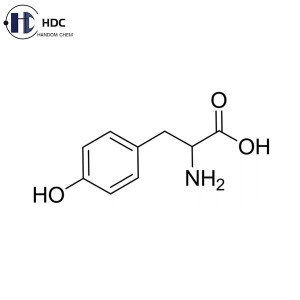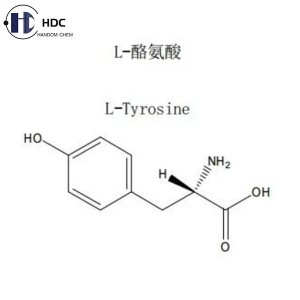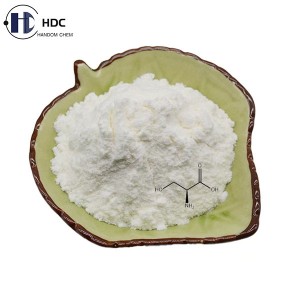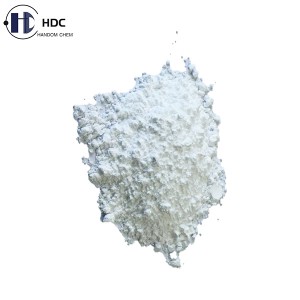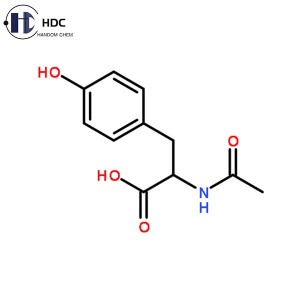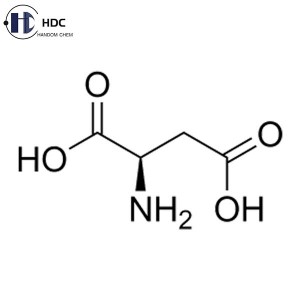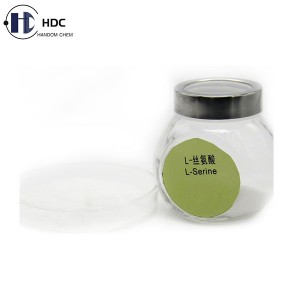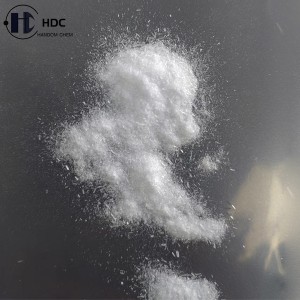L-Tyrosine
Brief Introduction:
Tyrosine (L-tyrosine, Tyr) is an important nutritional essential amino acid that plays an important role in the metabolism, growth and development of humans and animals, and is widely used in food, feed, pharmaceutical and chemical industries. It is often used as a nutritional supplement for patients with phenylketonuria, and as a raw material for the preparation of pharmaceutical and chemical products such as peptide hormones, antibiotics, L-dopa, melanin, p-hydroxycinnamic acid, and p-hydroxystyrene.
Specifications of our L-Tyrosine(H-Tyr-OH):
| Test Items | Specifications |
| Appearance | White crystals or crystalline powder |
| Identification | As per USP39 |
| Assay | 98.5% ~ 101.5% |
| Specific Optical Rotation[α]D25 | -9.8° ~ -11.2° |
| Chlorides | Not more than 400 ppm |
| Sulfates | Not more than 400 ppm |
| Iron (Fe) | Not more than 30 ppm |
| Lead (Pb) | Not more than 3 ppm |
| Cadmium (Cd) | Not more than 1 ppm |
| Mercury (Hg) | Not more than 0.1 ppm |
| Arsenic (As) | Not more than 1.5 ppm |
| Heavy Metals | Not more than 15 ppm |
| Loss on Drying | Not more than 0.30% |
| Residue on Ignition | Not more than 0.40% |
| Single impurity | Not more than 0.5% |
| Total impurities | Not more than 2.0% |
| Total plate count | Not more than 1000 CFU/g |
| Yeasts & Moulds | Not more than 100 CFU/g |
| Coliforms | Negative/25g |
| Salmonella | Negative/25g |
| Staphylococcus aureus | Negative/25g |
| Escherichia coli | Negative |
The Main Functions and Effects of L-Tyrosine:
♔ Neurotransmitter Synthesis: L-tyrosine is an important precursor of catecholamine neurotransmitters such as dopamine, norepinephrine, and epinephrine. Through a series of enzyme-catalyzed reactions, L-tyrosine is converted into dopamine, and then further converted into other catecholamine neurotransmitters, which regulate the functions of the nervous system, including mood, attention, and behavior.
♔ Thyroid Hormone Synthesis: L-tyrosine is also a key substance in thyroid hormone synthesis. It is converted into L-dopa tyrosine through a reaction catalyzed by tyrosine hydroxylase, and ultimately participates in the synthesis of thyroid hormone. Thyroid hormones are essential for normal growth and development and metabolic regulation.
♔ Melanin Synthesis: L-tyrosine is also an important substance in melanin synthesis. Through the catalysis of tyrosinase, L-tyrosine is converted into dopatyrosine, and then further synthesizes melanin, which participates in the production of skin, hair and eye pigments.
♔ Immune Function: L-tyrosine plays an important role in the immune system. It is involved in regulating the function and activity of immune cells, including promoting cellular immune responses and regulating the proliferation and differentiation of immune cells.
♔ Protein Synthesis: As an amino acid, L-tyrosine is a component of protein synthesis. It combines with other amino acids to form peptide chains and participates in protein synthesis and structure maintenance.
Packaging:
1kg/Aluminum Foil Bag, 25kg/Fibre Drum or according to the specific requirements from customers.
Storage Conditions:
Preserved in unopened original containers in a cool dry place before using; kept away from direct sunlight, heat and moisture.
Shelf Life:
36 months if stored under above mentioned conditions.


